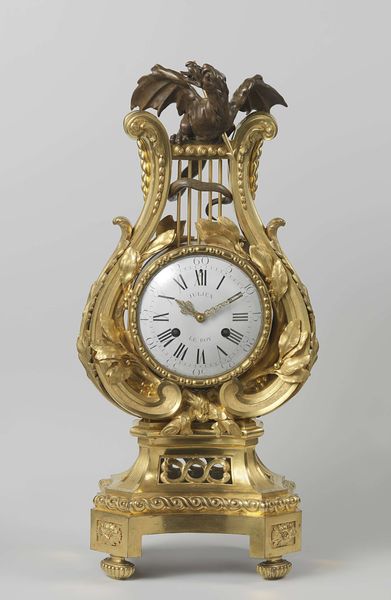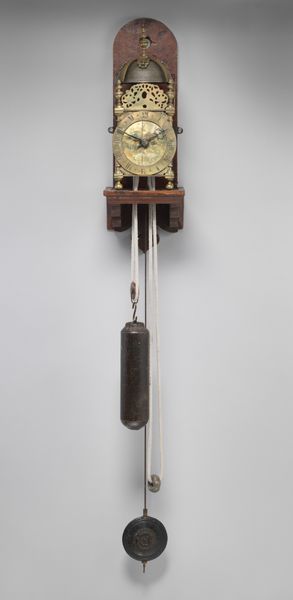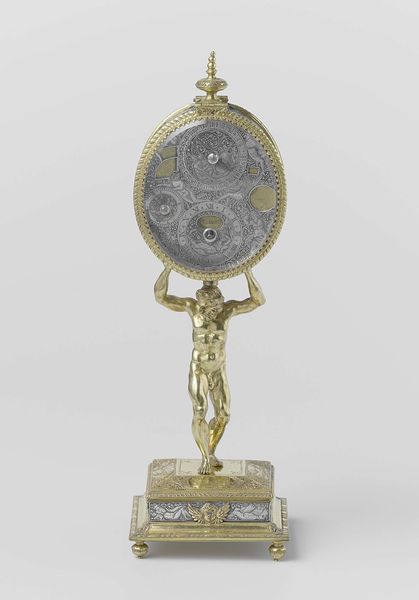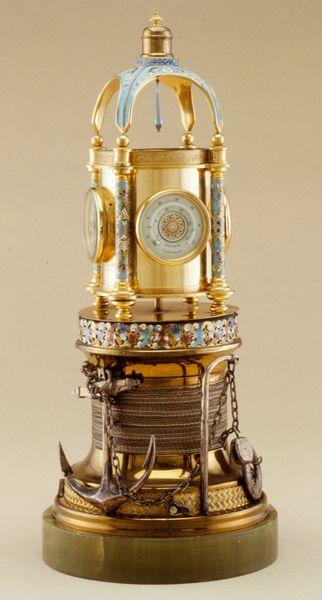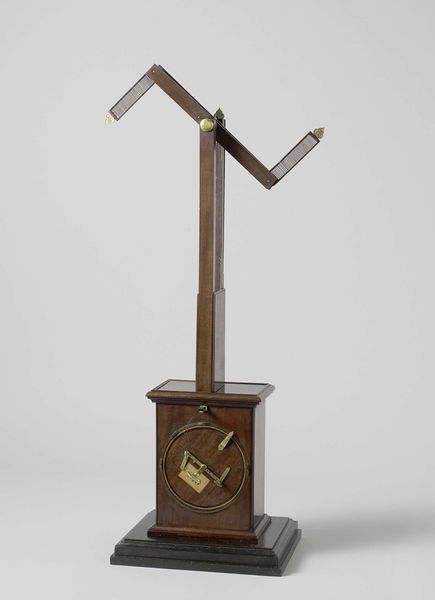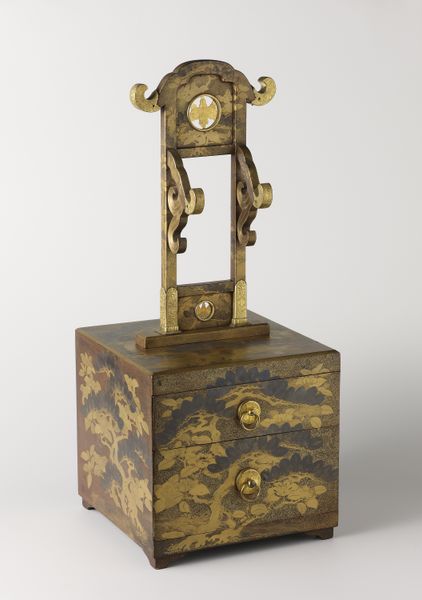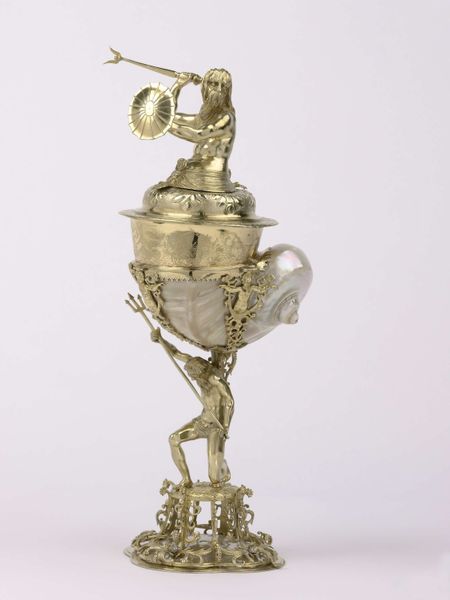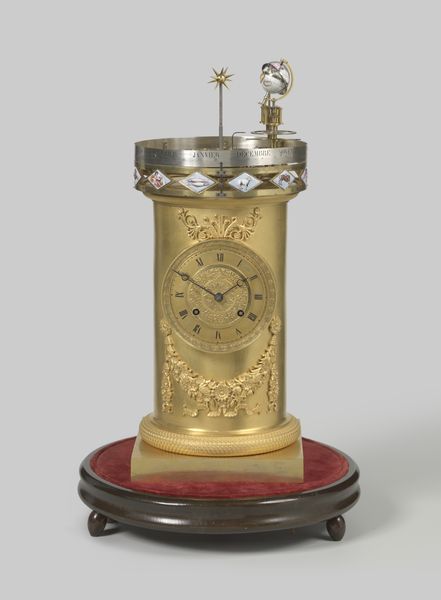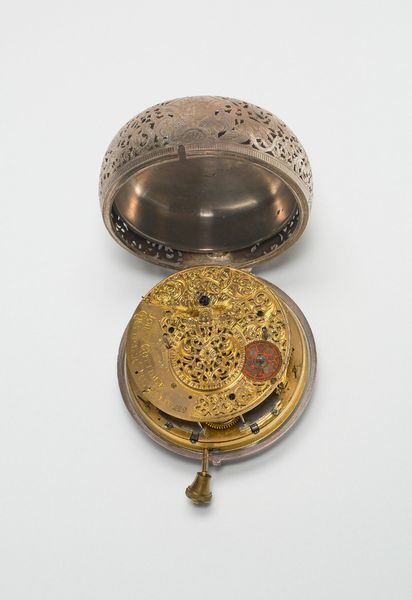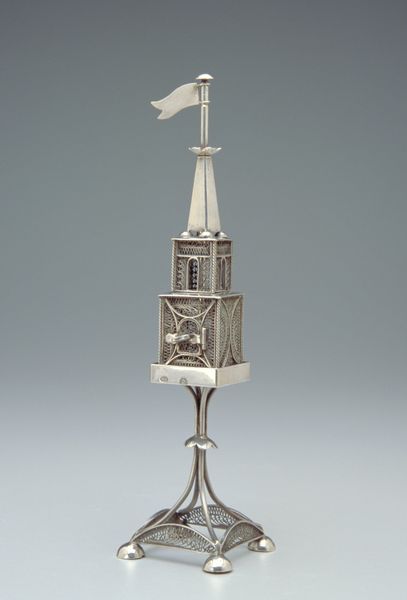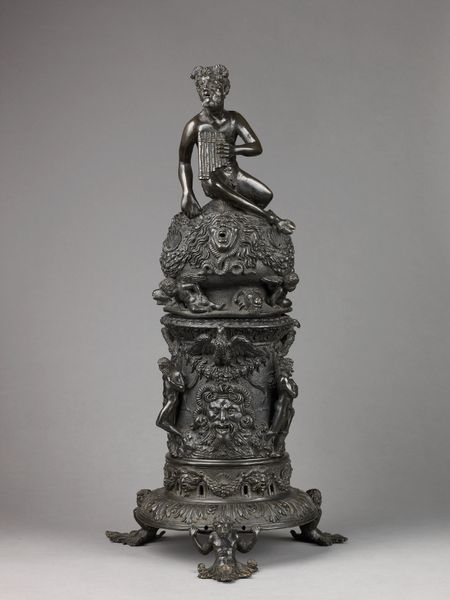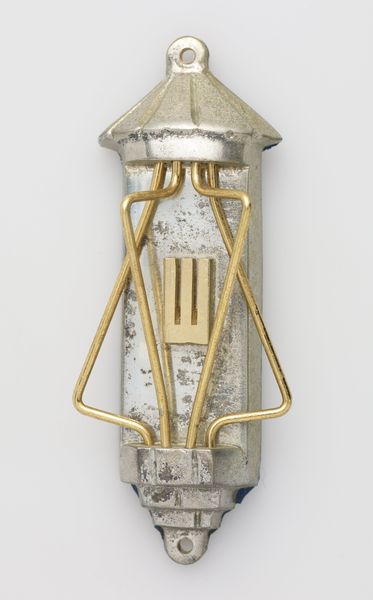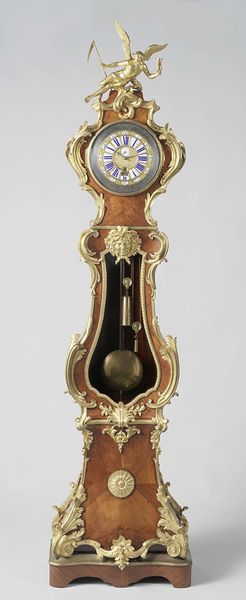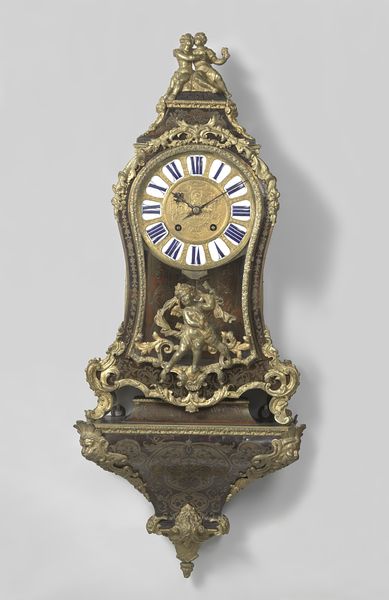
carving, sculpture, marble
#
neoclacissism
#
carving
#
sculpture
#
classical-realism
#
sculpture
#
history-painting
#
decorative-art
#
marble
Dimensions: height 229.5 cm, height 196 cm, width 76.3 cm, width 69.5 cm, depth 42 cm, depth 39 cm
Copyright: Rijks Museum: Open Domain
This elaborate metronome was made by Christiaan Welmeer, likely in the late 18th or early 19th century. It's crafted from marble, bronze, and gilded metal, materials that speak to a culture of refinement and status. The materials dictate the object's appearance. Marble, with its inherent veining and density, gives a sense of gravity and permanence, while the gilded metal accents introduce an element of luxury. It would have required a whole workshop of skilled hands, from quarrying and carving the stone, to casting and gilding the bronze elements. The design, with its classical references – the lyre shape, the column-like structure, the wreaths – all points to a society deeply invested in aesthetics and the pursuit of beauty. This metronome reflects a period where even the most functional objects were elevated through craftsmanship and design. It collapses any assumed hierarchy between art, craft and design.
Comments
rijksmuseum over 2 years ago
⋮
A metronome is a device for keeping time (a steady beat) while playing music. This example was given by several members of the Felix Meritis Society to its music department. It is shaped like a lyre surmounted by a laurel wreath, symbolizing the Triumph of Music.
Join the conversation
Join millions of artists and users on Artera today and experience the ultimate creative platform.
